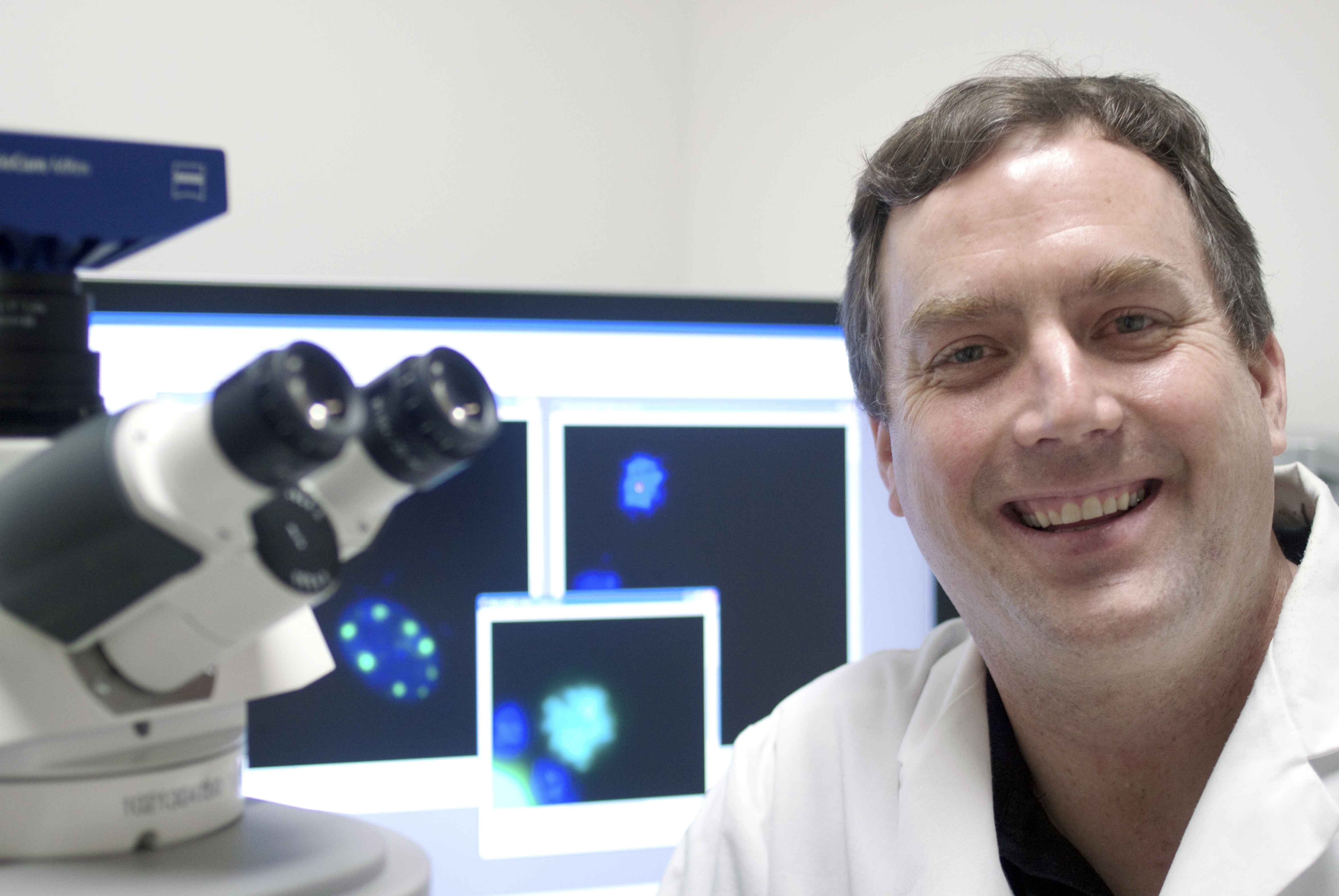UCLA Professor Peter Bradley’s wait for tenure approval

Peter Bradley, assistant professor in microbiology, immunology and molecular genetics, is awaiting a decision regarding his tenure package. He teaches classes, publishes scientific papers and applies for grants, all of which help contribute to his candidacy for tenure.
By Devin Kelly
Jan. 19, 2011 12:02 a.m.
When it came to the tenure track, Peter Bradley was told to remember the f-word ““ focus.
That became a mantra during his time as an assistant professor of microbiology, immunology and molecular genetics. After six years of flurried academic activity, Bradley submitted his tenure package.
While he waits for an answer, his career is at a crux.
“It’s up or out,” Bradley said. “You either get tenure or you have to leave.”
Under the shadow of the ticking tenure clock, Bradley teaches hundreds of students a quarter, runs a research lab in the Molecular Sciences Building and serves on a committee to decide the curriculum for his department.
He also publishes papers in high-profile journals, applies for grants and vies to become a leader in his field, all of which are components of approval for tenure.
Days are long by necessity. Bradley enters his office around 9 a.m.
He leaves around 9 p.m.
His energy is “contagious,” said Patricia Johnson, a professor of microbiology, immunology and molecular genetics. Johnson was Bradley’s Ph.D. adviser at UCLA from 1991 to 1997.
She also noted his enthusiasm for his research and for his students.
“Those are traits that are required to keep at it, the perseverance required to start and see a research project to its successful completion,” Johnson said. “He works extremely hard.”
Hard work and focus are required to contend for tenure, and the road there affects all aspects of life. An assistant professor is analogous to an airplane moving in a circular flight path, waiting for permission to land.
Bradley said he has hesitated to buy a house in Los Angeles and worries about moving his children to a new school.
“One big thing about tenure: You don’t have to move,” Bradley said. But, he added, he will still face the challenge to gain funding for his research.
Bradley studies a parasite called Toxoplasma, which infects humans. Its incidence is especially high in France and European states where people consume large amounts of undercooked meat. The parasite presents the greatest risk to the fetuses of pregnant women, transplant patients and AIDS patients in the form of severe nervous system disorders.
Toxoplasma is also closely related to malaria, a public health crisis in less developed parts of the world. The malarial parasite is notoriously difficult to study in a lab, Bradley said.
That is where his studies come in. He discovered that the simpler Toxoplasma work could be directly applied to malaria.
Opening up new areas of research and making novel discoveries, like his work on other parasite systems, are a large part of the tenure process. An applicant for tenure must show a body of work and publications in journals.
Pressure to publish is a constant.
“You’ve got to take a lot of punches in this job,” Bradley said. “If you can’t take a lot of punches, it’s not a good idea to go into it. A lot of things fail, and a lot of things have enticing results that peter out or don’t repeat.”
Sometimes he gets burned, he said. He deals with that fairly regularly, and accepting it is built into his training.
Then when a result does work, it’s “really sweet,” he said. “Worth all the pain and agony.”
He performs a daily balancing act between research and teaching. When he came to UCLA, he was thrown into a managerial role for the first time. He also had never taught classes before.
He was a “joke” his first year, he said.
“I was asking questions (on exams) that even my grad students couldn’t answer.”
That year, 2004, had low passing rates. Bradley said one student wrote an evaluation along the lines of “Can’t write an exam to save his life.”
He took the criticisms to heart. In his office, Bradley opens the top drawer of a filing cabinet. Inside are the folders containing the written evaluations from his classes.
He pulls out a file labeled “Intro to Microbiology 101″ from spring 2009 and flips through the evaluations. The comments are much more positive.
“Obviously, 2009, I got better,” he said.
In his lab, bottles, boxes and syringes cluster tightly into wall space above countertops. One room holds a $100,000 fluorescent microscope that Bradley affectionately calls his “baby.”
He cheerily greets students in lab coats and goggles, handling tubes of DNA. They identify his oncoming presence by his “big lumbering walk,” Bradley said with a laugh.
He worries that reduced funding means that he has to spend more time writing grant proposals instead of teaching. But Bradley handles the balance well. said Josh Beck, a microbiology, immunology and molecular genetics graduate student.
With Bradley’s guidance, Beck published a paper on Toxoplasma last year as the first author. The two are on first-name terms and interact frequently.
“I’ve spent relatively a lot of time with him,” Beck said. “Some (professors) are not as invested in teaching. I think Bradley does do well with that.”


